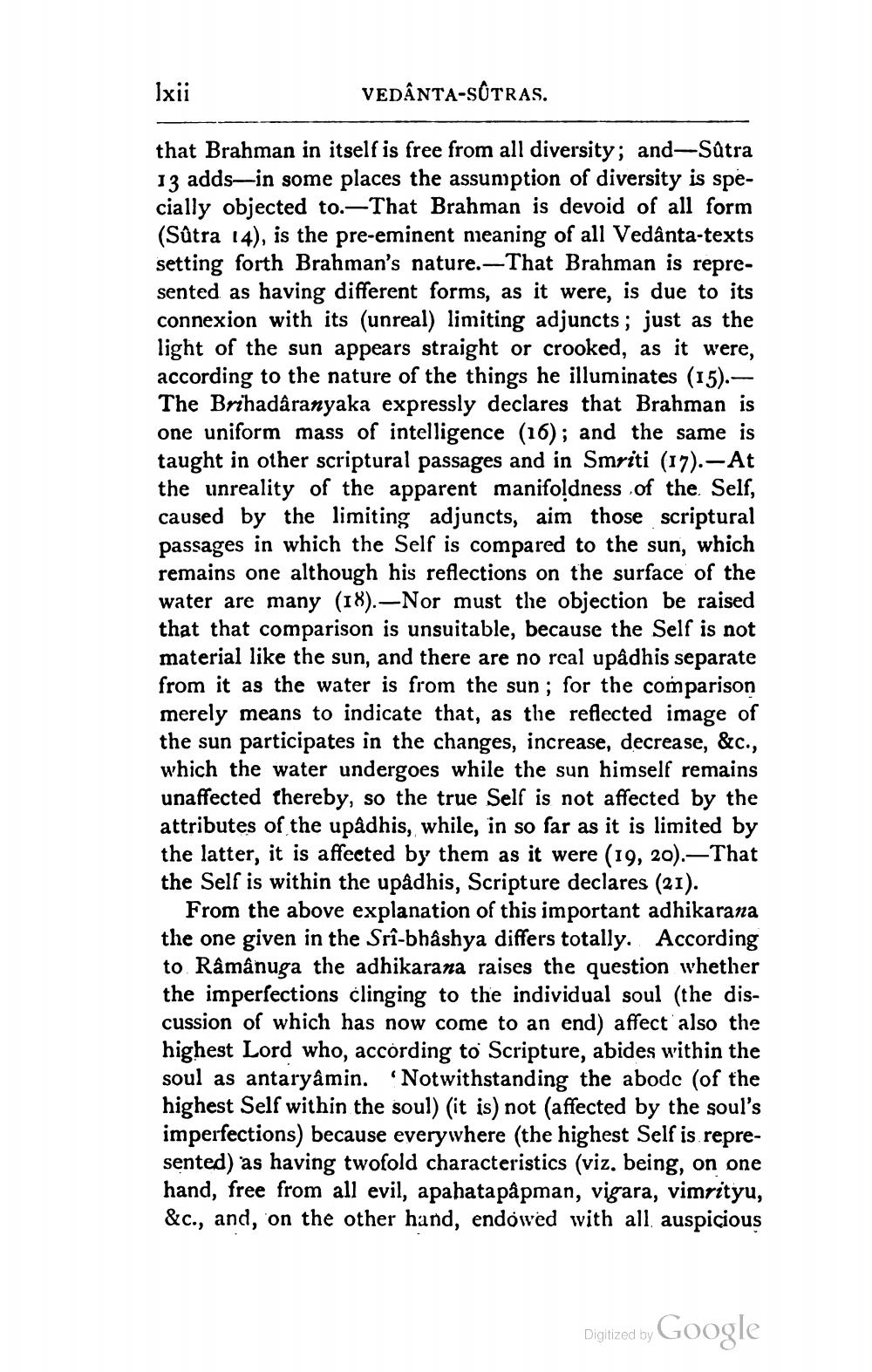________________
lxii
VEDÂNTA-SÛTRAS.
that Brahman in itself is free from all diversity; and Satra 13 adds—in some places the assumption of diversity is specially objected to.—That Brahman is devoid of all form (Sûtra 14), is the pre-eminent meaning of all Vedânta-texts setting forth Brahman's nature. That Brahman is represented as having different forms, as it were, is due to its connexion with its (unreal) limiting adjuncts; just as the light of the sun appears straight or crooked, as it were, according to the nature of the things he illuminates (15).The Brihadâranyaka expressly declares that Brahman is one uniform mass of intelligence (16); and the same is taught in other scriptural passages and in Smriti (17).-At the unreality of the apparent manifoldness of the. Self, caused by the limiting adjuncts, aim those scriptural passages in which the Self is compared to the sun, which remains one although his reflections on the surface of the water are many (18).-Nor must the objection be raised that that comparison is unsuitable, because the Self is not material like the sun, and there are no real upâdhis separate from it as the water is from the sun; for the comparison merely means to indicate that, as the reflected image of the sun participates in the changes, increase, decrease, &c., which the water undergoes while the sun himself remains unaffected thereby, so the true Self is not affected by the attributes of the upâdhis, while, in so far as it is limited by the latter, it is affected by them as it were (19, 20).—That the Self is within the upâdhis, Scripture declares (21).
From the above explanation of this important adhikarana the one given in the Srî-bhâshya differs totally. According to Râmânuga the adhikarana raises the question whether the imperfections clinging to the individual soul (the discussion of which has now come to an end) affect' also the highest Lord who, according to Scripture, abides within the soul as antaryamin. Notwithstanding the abode (of the highest Self within the soul) (it is) not (affected by the soul's imperfections) because everywhere (the highest Self is represented) as having twofold characteristics (viz. being, on one hand, free from all evil, apahatapâpman, vigara, vimrityu, &c., and, on the other hand, endowed with all, auspicious
Digitized by
Digitized by Google




